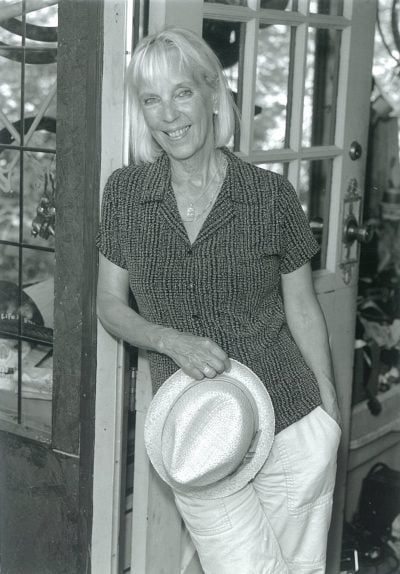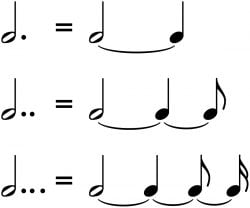#671 Connect the dots
The Great Happiness: Stories and Comics
by M.A.C. Farrant
Vancouver: Talonbooks, 2019
$14.95 / 9781772012217
Reviewed by Valerie Green
*
 I’ve learned through the years that book covers can be deceiving.
I’ve learned through the years that book covers can be deceiving.
Such was the case with M.A.C. Farrant’s book The Great Happiness, which shows a young girl, some flowers, and a small bird. It enticed me inside with its rare beauty even though the subtitle “Stories and Comics” had me puzzled.
Not having been introduced before into Farrant’s offbeat humour and quirky observations on life, I was still puzzled by the end of the book. How did the cover connect to the stories inside? And how did the stories connect to a Great Happiness?
The Great Happiness is a collection of short stories, poetry, and anecdotes written to describe those in search of happiness as they experience the absurdity of life.
It is the third instalment in Farrant’s series of “miniature fictions” and maybe, had I read the first two first, I might have known what to expect and could perhaps understand why this writer is described as “Canada’s most acerbic and intelligent humorist.”

Farrant has written a wide variety of prose and poems in this book but all of them left me wondering what they meant. If that was Farrant’s intention — to leave the reader questioning life and searching for humour in everyday events — then she achieved her purpose. Sadly, it didn’t work for me and sometimes the humour was missing.
Only a few of the stories caught my attention. “Positive Impact” was one. It tells of a woman on the West Coast who rescued a lobster from her town’s Save-on-Foods and shipped it on ice via Purolator to Prince Edward Island so that it could be returned to the ocean and set free. She admired that some Buddhist monks had freed many lobsters on the east coast in July of 2016 and wanted to do the same thing with one lobster from the west coast.
“Bouquets” also caught my eye. It shows the absurdity involved in throwing bridal bouquets.
“The Happiness Seminar” was another curious observation of life and contains my favourite quote in the book: “Happy people live. Unhappy people tell others how to live!”
 By the time I reached “The Many Marions,” the story at the end of the book, I was totally confused. It must have been the “musical dot” anecdotes I had passed through that left me even more puzzled. There were five in all where Farrant talks of dots in music and what they might mean. One, called “Little Dot,” reads “When I’m playing the cello I call my little dot and tell him I won’t be accessible for a few hours.” Another, called “The Notes Line Up,” speaks of five musical notes that “exist like pages in a book.” I wondered if the reader would really connect with any of them.
By the time I reached “The Many Marions,” the story at the end of the book, I was totally confused. It must have been the “musical dot” anecdotes I had passed through that left me even more puzzled. There were five in all where Farrant talks of dots in music and what they might mean. One, called “Little Dot,” reads “When I’m playing the cello I call my little dot and tell him I won’t be accessible for a few hours.” Another, called “The Notes Line Up,” speaks of five musical notes that “exist like pages in a book.” I wondered if the reader would really connect with any of them.
I finally finished the book trying to decide if I was extremely stupid or extremely smart — because I just didn’t “get” Farrant’s quirky observations on life. Perhaps only intelligent, highly-committed-to-the-absurd kind of people would.
Or perhaps I was simply enticed by the cover, which had no bearing on what was inside.
M.A.C. Farrant is an award-winning author of fifteen works of fiction and non-fiction as well as a memoir and two plays. She lives in North Saanich on Vancouver Island.
*

Valerie Green was born and educated in England where she studied journalism and law. Her passion was always writing from the moment she first held a pen in her hand. After working at the world-famous Foyles Book Store on Charing Cross Road, London, followed by a brief stint with M15 and legal firms, she moved to Canada in 1968, where she married and raised a family, while embarking on a long career as a freelance writer, columnist and author of over twenty non-fiction historical and true-crime books including Above Stairs, Upstarts and Outcasts, If these Walls Could Talk, Vanished: The Michael Dunahee Story, and Dunmora: The Story of a Heritage Manor House on Vancouver Island (Hancock House, 2017, reviewed in Ormsby #434 by Patrick Dunae). She is currently working on her debut novel Providence, which will be published soon as the first of The McBride Chronicles, an historical four-generational family saga bringing early BC history alive. Now semi-retired (although writers never really retire!) she enjoys taking short road trips around the province with her husband, watching their two beloved grandsons grow up and, of course, writing.
*
The Ormsby Review. More Books. More Reviews. More Often.
Publisher and Editor: Richard Mackie
The Ormsby Review is a journal service for serious coverage of B.C. books and authors, hosted by Simon Fraser University. The Advisory Board consists of Jean Barman, Robin Fisher, Cole Harris, Wade Davis, Hugh Johnston, Patricia Roy, David Stouck, and Graeme Wynn. Scholarly Patron: SFU Graduate Liberal Studies. Honorary Patron: Yosef Wosk. Provincial Government Patron since September 2018: Creative BC
“Only connect.” – E.M. Forster